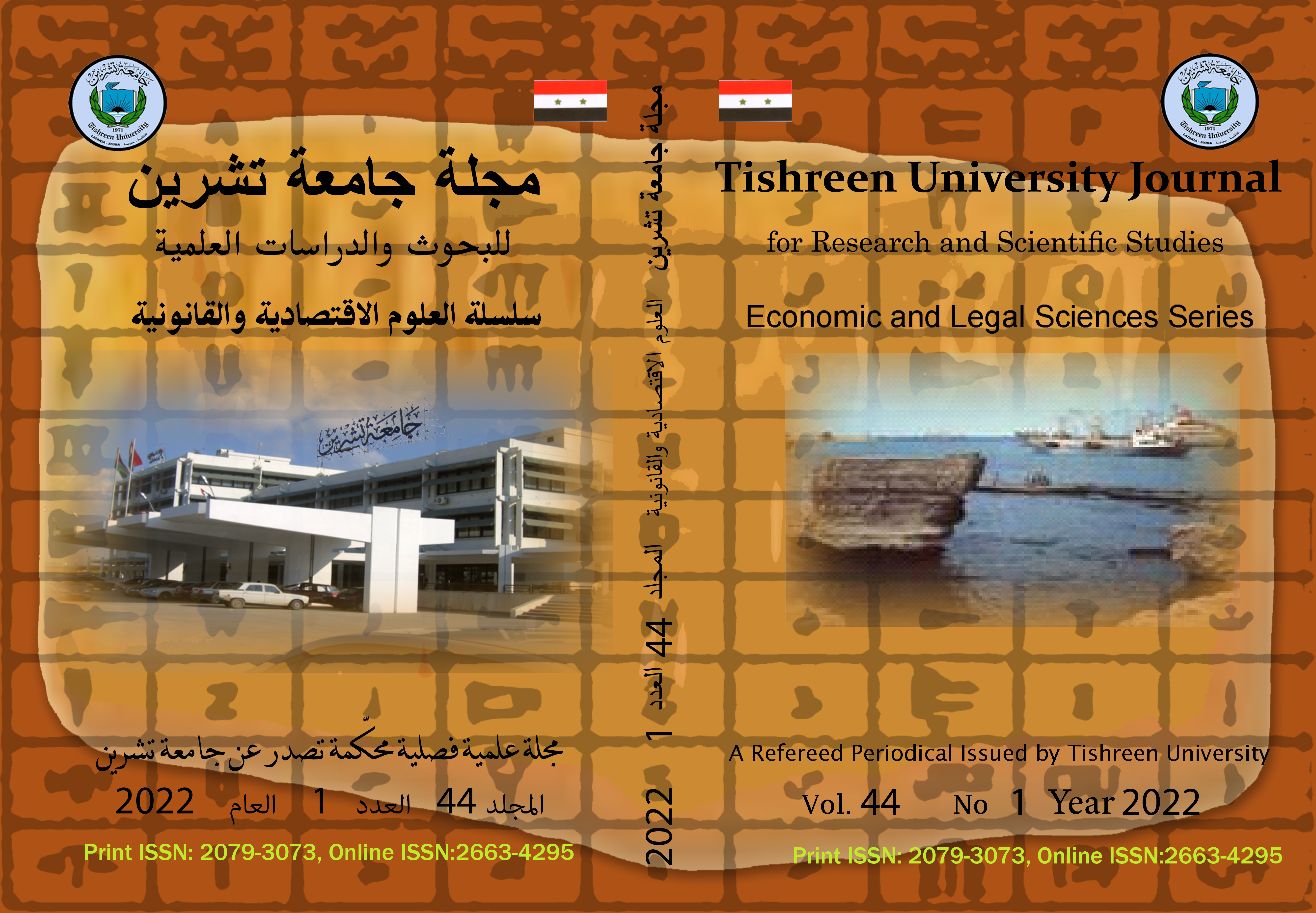The Role Of The “Best Practices” Model In Processing The Problem Of Low Quality Of Banking Services A Field Study On Sample Of Syrian Private Banks
Abstract
The best practices model is one of the most prominent models of process re-engineering as an integrated work system based on describing the current situation as it is, then evaluating the current situation, and proposing future operations, as process re-engineering seeks to improve radically, not just continuous improvement and serves as an entry point for reform administration in general. The Syrian banking sector in general suffers from a decline in the level of quality of banking service it provides to clients.
The research aims to evaluate the role of the best practices model in addressing the problems of low quality of banking services by applying to Syrian private banks, in particular with regard to electronic banking services that private banks have put into the market, and whose launch resulted in the reengineering of banking operations in line with the requirements for providing these services. To achieve this, two main hypotheses were formulated, and the researcher used the questionnaire method to collect the data that was analyzed using statistical tests, the most important of which are: The One-Sample T. test, the Pearson Correlation test, and regression analysis.
The researcher reached several results, the most important of which are: A strong direct relationship between the application of the best practices model and the quality of banking service in the private banks under study.
Downloads
Published
How to Cite
Issue
Section
License

This work is licensed under a Creative Commons Attribution-NonCommercial-ShareAlike 4.0 International License.
-
The authors retain the copyright and grant the right to publish in the magazine for the first time with the transfer of the commercial right to Tishreen University Journal of Research and Scientific Studies - Economic and Legal Sciences
Under a CC BY- NC-SA 04 license that allows others to share the work with of the work's authorship and initial publication in this journal. Authors can use a copy of their articles in their scientific activity, and on their scientific websites, provided that the place of publication is indicted in Tishreen University Journal of Research and Scientific Studies - Economic and Legal Sciences . The Readers have the right to send, print and subscribe to the initial version of the article, and the title of Tishreen University Journal of Research and Scientific Studies - Economic and Legal Sciences Publisher
-
journal uses a CC BY-NC-SA license which mean
You are free to:
- Share — copy and redistribute the material in any medium or format
- Adapt — remix, transform, and build upon the material
- The licensor cannot revoke these freedoms as long as you follow the license terms.
-
Attribution — You must give appropriate credit, provide a link to the license, and indicate if changes were made. You may do so in any reasonable manner, but not in any way that suggests the licensor endorses you or your use.
-
NonCommercial — You may not use the material for commercial purposes.
-
ShareAlike — If you remix, transform, or build upon the material, you must distribute your contributions under the same license as the original.
- No additional restrictions — You may not apply legal terms or technological measures that legally restrict others from doing anything the license permits.


